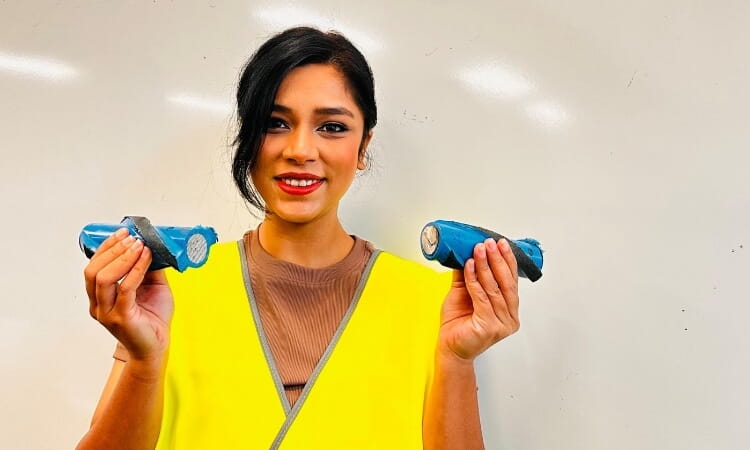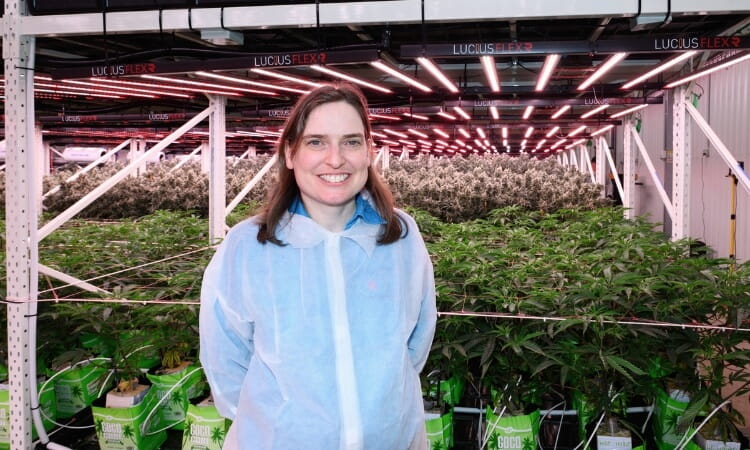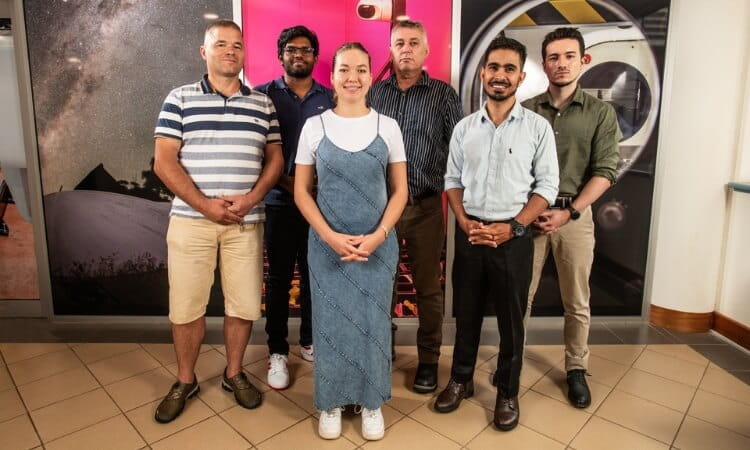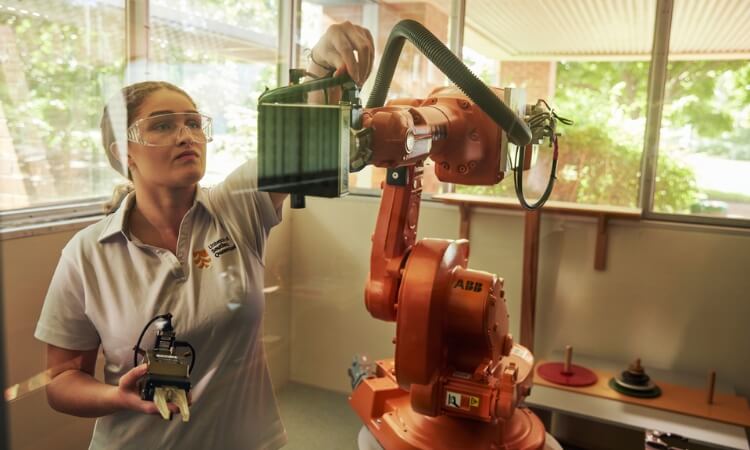Game-changer for sustainable recycling in oil and gas industry

Australia’s oil and gas industry produces hundreds of metric tonnes of thermoplastic waste each year – a major environmental burden often destined for landfill.
University of Southern Queensland (UniSQ) PhD student Chundu Gyem Tamang is pioneering a sustainable solution to change that.
Her research seeks to recycle rod guides – a key component used extensively in the industry – to create high-quality materials for new products, advancing circular economy practices and reducing emissions.
“Traditionally, these rod guides are sent to landfills,” Ms Tamang said.
"My research aims to turn this waste into valuable materials for manufacturing new rod guides, contributing to the oil and gas sector’s sustainability, clean energy and circular economy goals.”
Working with Oilfield Piping System – one of Queensland's biggest downhole material suppliers – she recently enhanced her expertise by visiting the Australian Nuclear Science and Technology Organisation (ANSTO) in Sydney as part of a winter school.
Ms Tamang explored the facility’s DINGO and BILBY-SANS instruments, critical for assurance testing her research.
“These instruments can help ensure the high-quality production of recycled rod guides, pushing the boundaries of thermoplastic recycling by exploring 100 per cent recyclability potential,” she said.
Ms Tamang also developed her expertise in nuclear science and explored the benefits of cutting-edge nuclear science technologies available at ANSTO.
“Integrating nuclear science with sustainable material manufacturing could offer a future of high-precision quality assurance in thermoplastic recycling,” she said.
“This pioneering approach has the potential to significantly reduce the environmental impact of the oil and gas industry while improving the longevity and performance of rod guides.
“It will also help manage around 2.4 billion waste rod guides worldwide.”
Director of UniSQ’s Centre for Future Materials and Ms Tamang’s principal supervisor, Professor Allan Manalo, said her groundbreaking research was at the forefront of what could be a game-changer for the oil and gas industry.
“This project is a transformative step toward not only reducing plastic waste in landfills but also conserving the massive amounts of resources and energy that go into producing new rod guides,” Professor Manalo said.
“By recycling the used guides and incorporating them into novel designs, we’re working toward a future where oil and gas companies can significantly reduce their environmental footprint.”
Ms Tamang’s project supports the UniSQ-led SIMPLE (Sustainable Industry Manufacturing Planning for Long-Term Ecosystems) Hub’s objectives by creating sustainable and circular economy opportunities through local industry collaboration and partnership with Oilfield Piping System.
By diverting waste from landfill to recovery and remanufacturing systems, her work supports efforts to reduce environmental degradation and the carbon footprint of oil and gas operations.
Learn more about her project.


